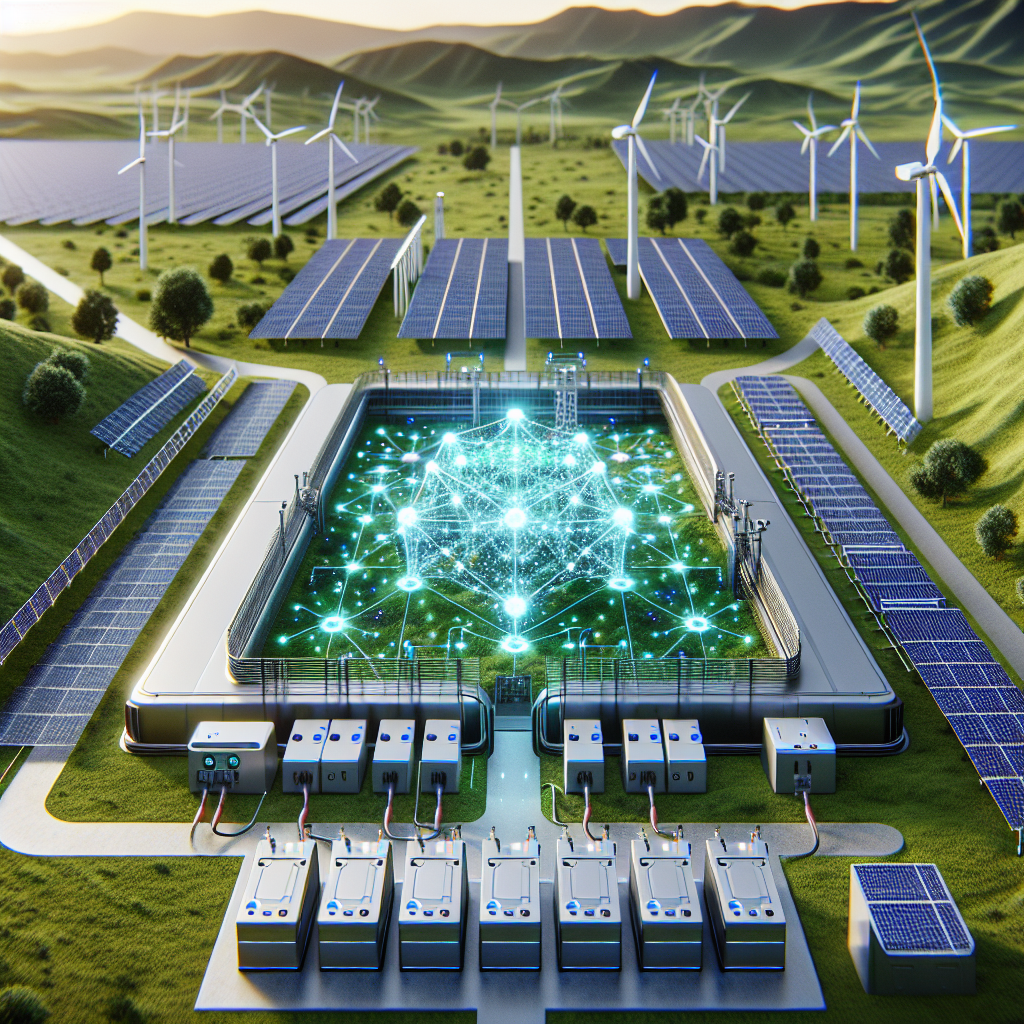The Impact of AI on Energy Storage Systems for Renewables
Introduction
As the world transitions towards a more sustainable future, renewable energy sources such as solar and wind power are becoming increasingly popular. However, one of the biggest challenges with these sources is their intermittent nature, which can lead to issues with grid stability and reliability. Energy storage systems play a crucial role in addressing these challenges by storing excess energy when it is available and releasing it when needed.
Artificial intelligence (AI) is revolutionizing the way we approach energy storage systems for renewables. By using advanced algorithms and machine learning techniques, AI can optimize the operation of energy storage systems, improve their efficiency, and maximize their performance. In this article, we will explore the impact of AI on energy storage systems for renewables and the benefits it brings to the renewable energy sector.
Benefits of AI in Energy Storage Systems
1. Improved Efficiency: AI algorithms can analyze data from renewable energy sources and predict energy generation patterns. By using this data, energy storage systems can optimize their charging and discharging cycles to maximize efficiency and reduce energy waste. This leads to lower operating costs and increased energy savings.
2. Enhanced Grid Stability: The intermittent nature of renewable energy sources can cause fluctuations in the grid, leading to stability issues. AI can help energy storage systems respond quickly to these fluctuations by adjusting their output in real-time. This improves grid stability and reliability, ensuring a smooth transition to a renewable energy future.
3. Predictive Maintenance: AI can also be used to monitor the health of energy storage systems and predict when maintenance is needed. By analyzing data from sensors and performance metrics, AI algorithms can detect potential issues before they become serious problems. This proactive approach to maintenance can help prevent downtime and extend the lifespan of energy storage systems.
4. Optimal Sizing: AI can help determine the optimal size of energy storage systems based on the specific needs of a renewable energy project. By analyzing data on energy generation, consumption patterns, and grid requirements, AI algorithms can recommend the most cost-effective storage solution. This ensures that energy storage systems are properly sized to meet the demands of the project, maximizing their effectiveness.
5. Energy Trading: AI can also be used to optimize energy trading in the renewable energy market. By analyzing market trends, weather forecasts, and energy prices, AI algorithms can determine the best times to buy and sell energy. This can help renewable energy projects maximize their revenue and offset the costs of energy storage systems.
FAQs
Q: How does AI improve the efficiency of energy storage systems for renewables?
A: AI algorithms can analyze data from renewable energy sources and predict energy generation patterns. By using this data, energy storage systems can optimize their charging and discharging cycles to maximize efficiency and reduce energy waste.
Q: Can AI help improve grid stability with renewable energy sources?
A: Yes, AI can help energy storage systems respond quickly to fluctuations in renewable energy generation, improving grid stability and reliability.
Q: How does AI enable predictive maintenance for energy storage systems?
A: AI algorithms can monitor the health of energy storage systems and predict when maintenance is needed by analyzing data from sensors and performance metrics.
Q: How can AI help determine the optimal size of energy storage systems for renewables?
A: AI algorithms can analyze data on energy generation, consumption patterns, and grid requirements to recommend the most cost-effective storage solution.
Q: How does AI optimize energy trading for renewable energy projects?
A: AI can analyze market trends, weather forecasts, and energy prices to determine the best times to buy and sell energy, maximizing revenue for renewable energy projects.
Conclusion
AI is transforming the renewable energy sector by revolutionizing the way we approach energy storage systems. By improving efficiency, enhancing grid stability, enabling predictive maintenance, optimizing sizing, and facilitating energy trading, AI is helping renewable energy projects reach their full potential. As the world continues to shift towards a more sustainable future, AI will play a crucial role in accelerating the adoption of renewable energy sources and ensuring a reliable and resilient energy system for generations to come.

